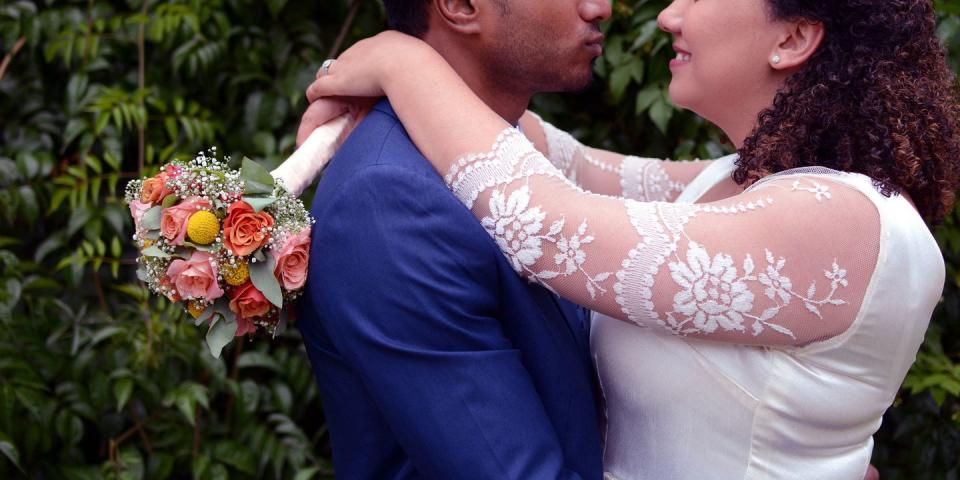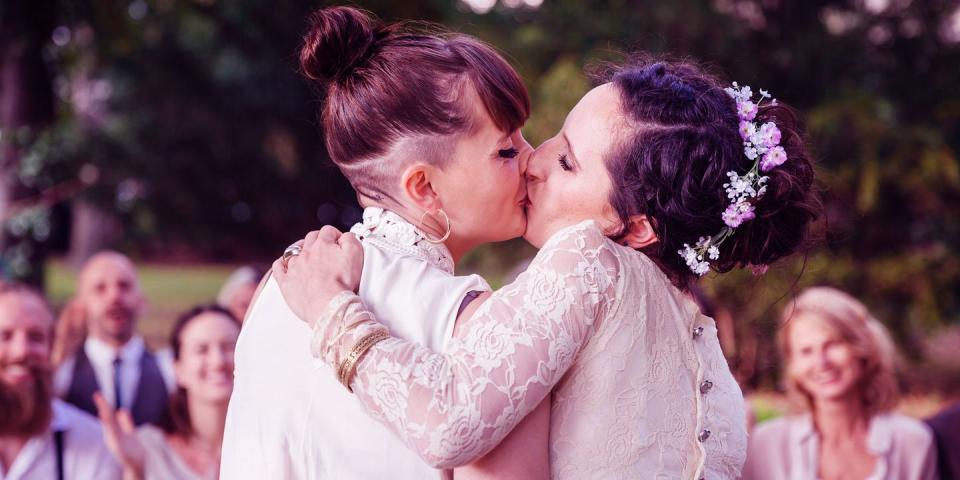Couples who have this type of wedding ceremony are the least likely to get divorced

There are so many decisions to make when getting married, from which traditions to totally turn your back on (ditch the cake, go for a giant wheel of cheese obviously) and which to embrace. But it turns out you may also want to have a bit of a bigger think about the type of wedding you have - because those who have a humanist wedding are the least likely to get divorced.
New data shows couples who had humanist ceremonies in Scotland were almost four times less likely to go through a divorce than those who had civil marriages. They were two times less likely than Church of Scotland marriages, and three times less likely Roman Catholic marriages.
Between 2017 and 2018, there were 14,702 civil ceremonies in Scotland, compared to 5,702 humanist, 3166 Church of Scotland and 1182 Roman Catholic. The report from Humanists UK says, "Overall, looking at marriages within the last fifteen years, 0.25% of couples who had a humanist marriage got divorced in 2017-18, compared to 0.84% of all other couples. This stark difference remains regardless of duration of marriage."

So, what is a humanist wedding?
Humanist weddings are, most importantly, non-religious and conducted by a humanist celebrant. As Humanism.org.uk explains, "It differs from a civil wedding in that it is entirely hand-crafted and reflective of the humanist beliefs and values of the couple, and conducted by a celebrant who shares their beliefs and values."
Marriages of this kind have been legally recognised in Scotland since 2005, and the Republic of Ireland since 2012. They became legal in Northern Ireland last year. In England and Wales, couples who want to marry this way also have to go through a civil wedding process for their marriage to be recognised by the law - something 1000 couples do every year.

Chief executive at Humanists UK Andrew Copson said, "Humanist weddings are deeply personal, with a unique ceremony crafted for each couple by a celebrant that gets to know them well and ensures that their script and vows reflect precisely who they are and the commitment they are making to each other. They are highly meaningful occasions and are increasingly popular."
The government is currently working on a review of marriage laws relating to venues in England and Wales, which may include changing the way humanist ceremonies are recognised by the law. Humanists UK believes the lack of legal recognition is "unfair, and since religious marriages do carry such recognition, discriminatory."
('You Might Also Like',)



